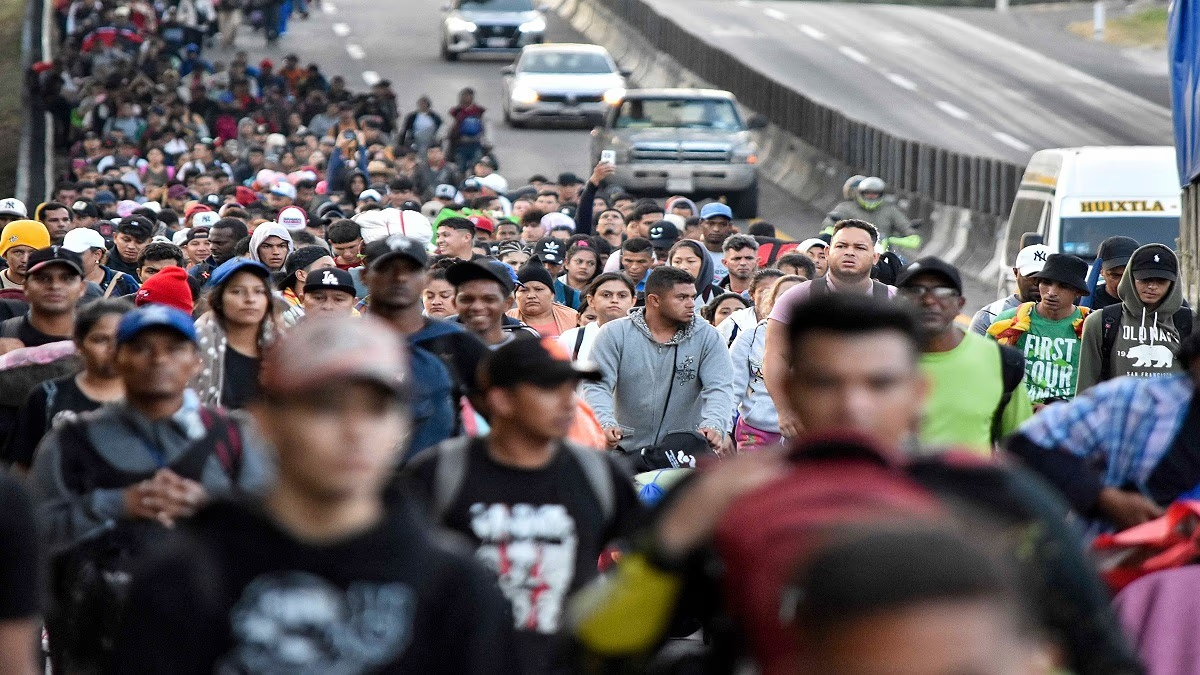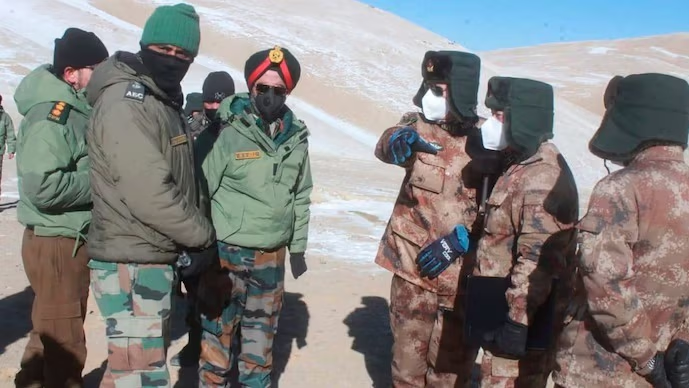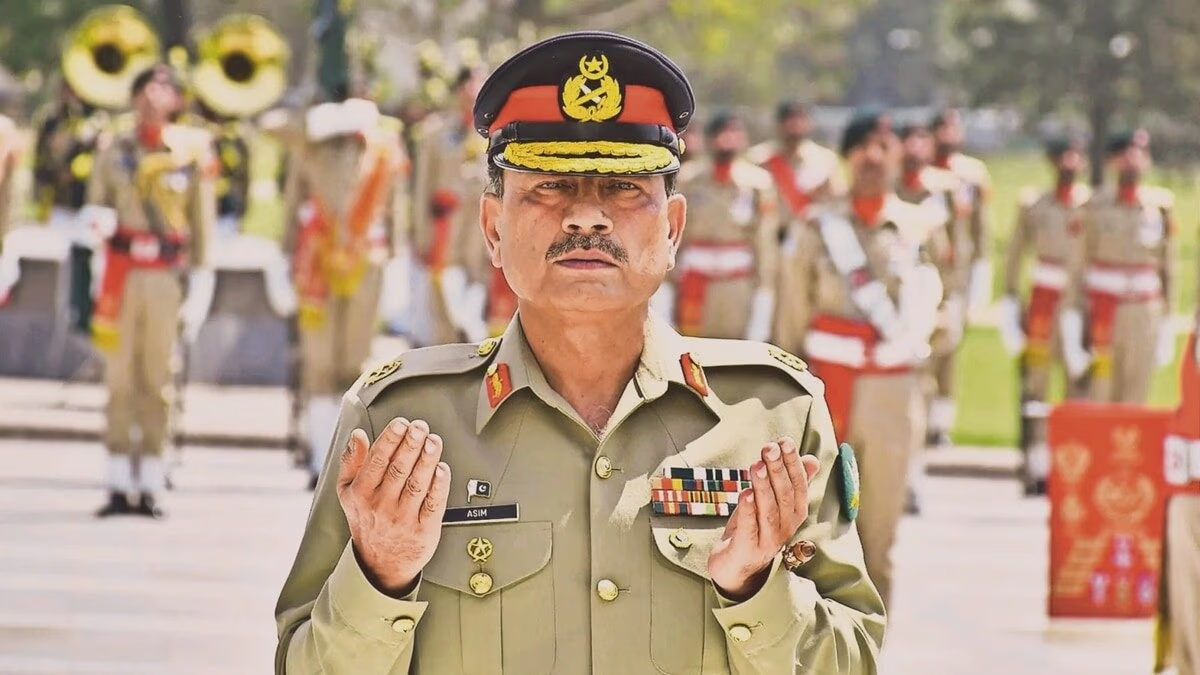Some homecomings are not comforting; they shake you awake at night. Youngsters returning from 'Canada' and 'America' are stuck in this in-between state. Many students who went abroad on student visas have returned for 'long vacations'. Several risked their lives to reach America, only to be sent back with the tag of 'stinky rat'.
The condition of Indians in Canada is dire, especially for young women. To save on rent, many live with multiple unknown male roommates. I was even approached by someone to let them stay in my room. Attracted by glamorous reels, I went there but couldn't last even two months. There is neither work nor respect.
People are willing to do anything for little money. Many live in tents and eat at Langars. Our own village is far better!
This man, who went to Canada on a work visa, says it's a new trend now. It's harder to get a student visa, and work permits are sold at exorbitant prices, like black market tickets.
Amidst tensions between Ottawa and Delhi, the changing visa regulations have greatly impacted Punjab. English-teaching centers are closing, and visa agents are seeking new work. Many people who went abroad have returned, claiming it's a long vacation to save face. Those remaining are fearful of when their turn will be.
In Jalandhar, Punjab, you will see houses with ship-shaped water tanks. Adjacent is Kapurthala, the so-called NRI belt, where even children fly kites with the Canadian flag.
You see not just Canada, but US and European flags on the vehicles. Every fourth person you meet on the streets has lived abroad and returned. Those who haven't are preparing to go.
This fast-moving vehicle came to a sudden halt as Canada tightened visa rules, and the new US administration wasn't in a welcoming mood. Raids began to smoke out the unauthorized arrivals, causing ripples even in Punjab's smallest villages.
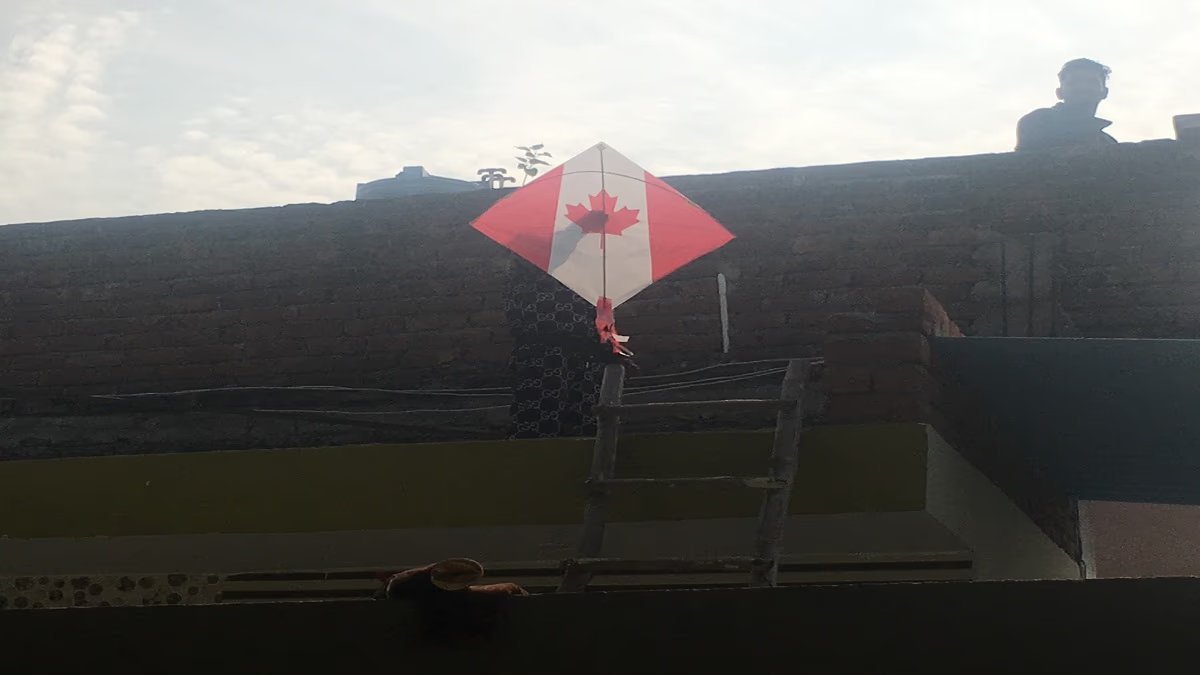
Source: aajtak
For days, every moment was a battle—to hide and remain unidentified. The more recognized you are in the village here, the more invisible you had to be there to stay safe.
With incomplete documents, how did you manage to get an apartment?
We had passports but no permission to stay in the US. We used the Donkey Route to get there. Upon arrival, we handed our case to a lawyer who continuously demanded money. Many Punjabi and Haryanvi families were his clients. He arranged our accommodation among others like us, in a sort of colony for people from outside.
One time, while in the park, someone took my picture. It was their mistake, but I was terrified. Such a thing would never happen at home, or if it did, I would confront the person. But there, I stayed silent and never returned to that park, fearing capture and the police.
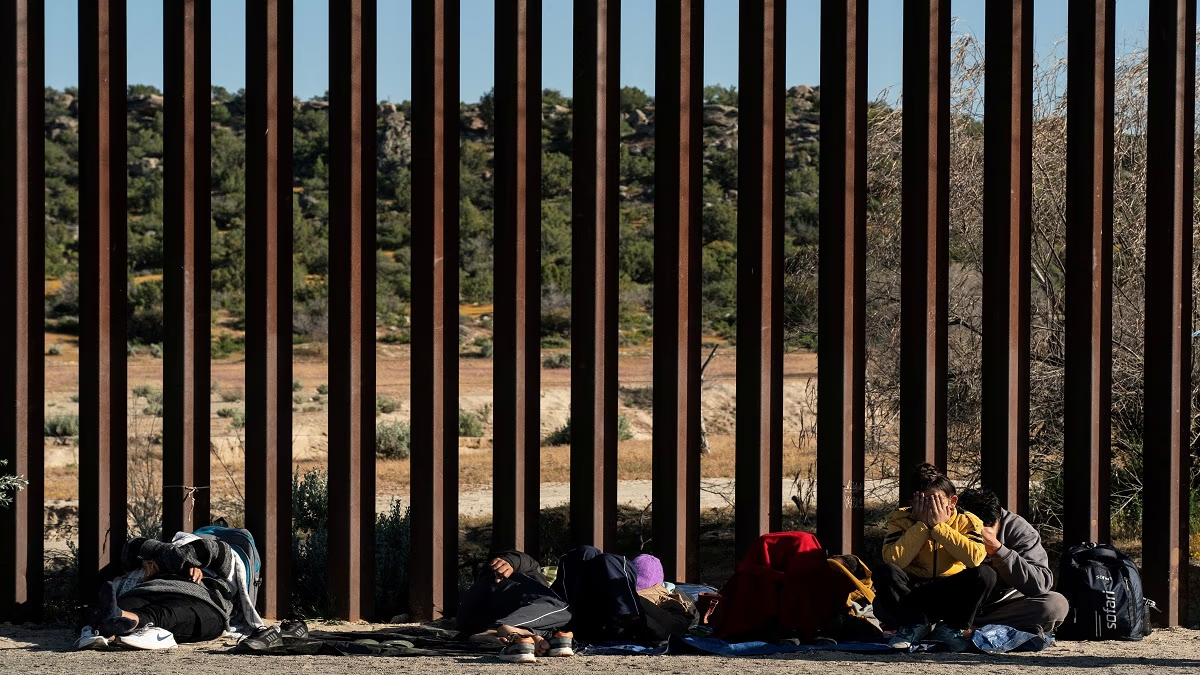
Source: aajtak
In California, if work could be found, we did it. Males could find jobs, but it was harder for women. I worked as a nanny for Punjabi-Gujarati families that had settled years ago. They laughed at our accent. Called for childcare, we ended up doing all housework for minimal wages.
Even when unemployed, we lived in fear. A loud knock made us suspect it was police at the door.
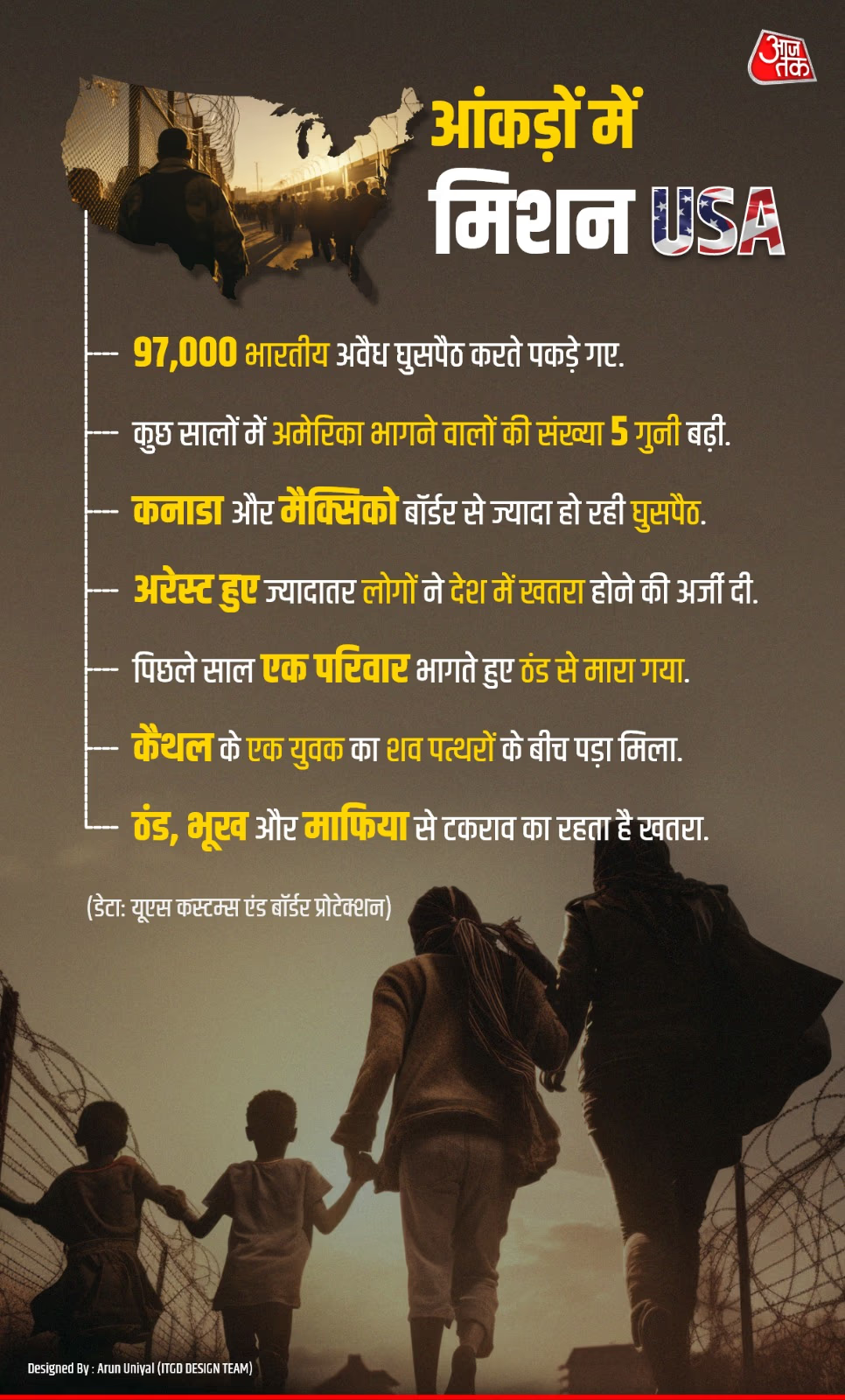
Source: aajtak
How did you come back?
My husband worked at a gas station, where a raid took place. We were questioned and sent to a border detention camp. Despite contacting our lawyer, he couldn't do much. We stayed in the camp until deported.
Yes, consider it a jail. Many were like us, from other countries too. Women with young children. 20-25 people crammed in a room, taking turns to sleep, but mostly awake. Contaminated food and the constant foul odor from toilets left unattended due to cold and lack of cleaning staff haunted us even after returning.
Despite everything, Jaspreet is still attempting to return to America. She visits every day to pray, saying Punjabis don't leave with intentions of returning. We'll make some money and then return to our village.
The new US administration is enforcing stricter rules! I point out my skepticism. Yes, that's why I'm praying to the Almighty.

Source: aajtak
In the NRI belt of Kapurthala in Punjab, faces like Jaspreet's are common. Start a conversation, and you'll soon encounter someone with dreams of living abroad. Kulwinder is another such woman. After two failed attempts, her husband got a chance to go to America. After a 21-day journey, he arrived only to face immediate threats of deportation.
